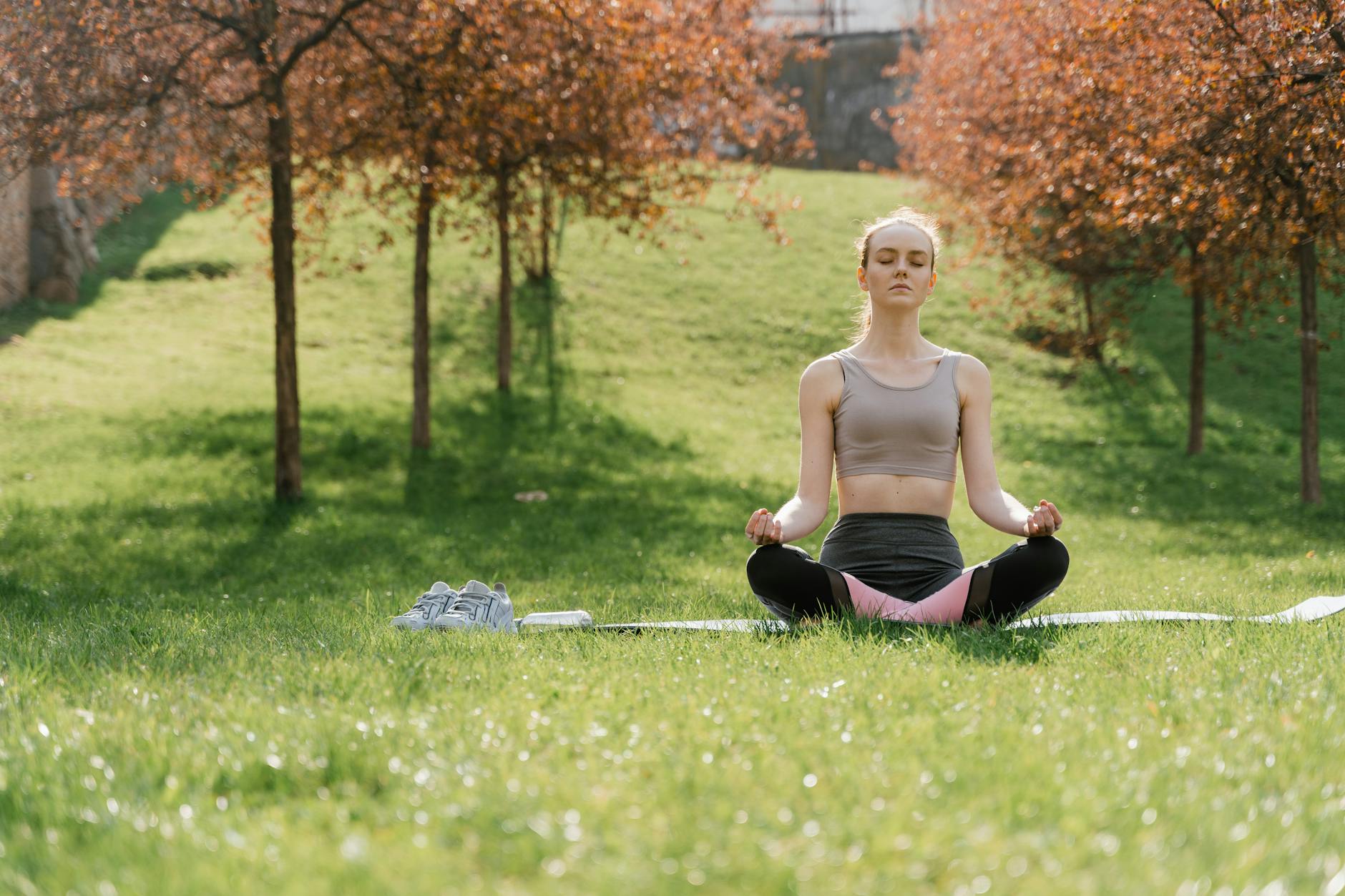What is meditation?
What is Meditation?
Meditation is more than just sitting quietly; it’s a transformative practice that has gained immense popularity in today’s fast-paced world. As we navigate the demands of personal development and strive for a better work-life balance, meditation emerges as a powerful tool. It allows us to cultivate mindfulness and achieve inner peace, making it essential for enhancing our overall well-being.
Understanding Meditation
Meditation at its core is about training the mind. It involves focusing attention and eliminating distractions to achieve a calm, clear state of consciousness. This practice isn’t just a fleeting trend; it’s a profound journey into self-awareness and tranquility.
What is Meditation?
Meditation is the art of directing your thoughts towards a single point of focus, whether it’s your breath, a mantra, or a visual image. The aim is to quiet the mind and create a state of relaxation that transcends the chaos of daily life. As you practice, you may find that meditation helps you gain clarity, reduce stress, and foster a deeper connection with yourself.

Photo by MART PRODUCTION
Brief History of Meditation
Meditation has roots in ancient cultures, dating back thousands of years. It originated in the East, notably in India and China, where it was practiced for spiritual growth and enlightenment. Over time, meditation evolved and spread across the globe, adapting to various cultures and beliefs. Today, it is embraced by people of all backgrounds, primarily for its mental and physical health benefits.
Benefits of Meditation
Meditation offers a myriad of benefits that extend beyond mere relaxation. It has been shown to positively impact mental health, physical health, and overall productivity.
Mental Health Benefits
Research indicates that regular meditation can significantly reduce anxiety, depression, and stress. By fostering a sense of calm, meditation encourages emotional resilience, helping you navigate life’s challenges with ease. It acts as a shield against the mental clutter that often overwhelms us. For an in-depth look at the mental health effects of meditation, check out this detailed analysis by Healthline.
Physical Health Benefits
The benefits of meditation also spill over into physical health. Studies have demonstrated that meditation can lower blood pressure, improve sleep quality, and enhance overall well-being. A consistent meditation practice can lead to a healthier lifestyle by promoting habits that support physical health, as shared by the Mayo Clinic.
Impact on Productivity and Focus
In our increasingly busy lives, maintaining focus can be challenging. Meditation is a valuable technique for improving concentration and productivity. It trains the mind to stay present, which is essential for effective study habits and work performance. By incorporating meditation into your routine, you can enhance your ability to focus and accomplish tasks with greater efficiency.
Different Types of Meditation
Meditation is not a one-size-fits-all approach; various styles cater to different preferences and goals. Here are some popular forms of meditation that you might explore.
Mindfulness Meditation
Mindfulness meditation emphasizes being present in the moment. This technique encourages you to observe your thoughts and feelings without judgment. By practicing mindfulness, you can develop a deeper understanding of yourself and cultivate a sense of peace. For a guide on how to meditate mindfully, visit Mindful.org.
Transcendental Meditation
Transcendental Meditation (TM) is a specific technique that involves silently repeating a mantra to settle the mind into a state of profound rest. TM is known for its simplicity and effectiveness, making it accessible to anyone interested in meditation. This method is particularly beneficial for those seeking to reduce stress and enhance creativity.
Guided Meditation
For beginners, guided meditation can be an excellent starting point. This approach typically involves listening to a teacher or using an app to lead you through the process. Guided sessions can help you stay focused and relaxed, making it easier to build a consistent practice. You can find numerous resources online, including apps that provide guided meditations tailored to various needs.
How to Get Started with Meditation
If you’re ready to explore meditation, here are some practical steps to help you begin your journey.
Creating a Meditation Space
Setting up a dedicated space for meditation can enhance your practice. Choose a quiet area in your home, free from distractions. Add comfortable seating, soft lighting, and maybe some calming scents like essential oils. This space should evoke a sense of peace, making it easier for you to relax.
Establishing a Routine
Incorporating meditation into your daily routine is crucial for experiencing its full benefits. Start small, perhaps with just five to ten minutes each day, and gradually increase the duration as you become more comfortable. Consistency is key, so try to meditate at the same time each day, whether it’s in the morning, during a lunch break, or before bed.
Resources and Tools for Meditation
Numerous resources are available to support your meditation practice. Consider exploring apps like Headspace or Calm, which offer guided sessions and techniques for various skill levels. Additionally, books on meditation can provide deeper insights and methodologies to enrich your experience. A comprehensive list of resources can be found at Healthline.
Conclusion
Meditation is a powerful practice that can profoundly impact your personal and professional life. By embracing meditation, you can reduce stress, improve focus, and enhance your overall well-being. As you embark on this journey, remember that the key is consistency and openness to exploring different techniques. So why not start today? Your mind and body will thank you for it.